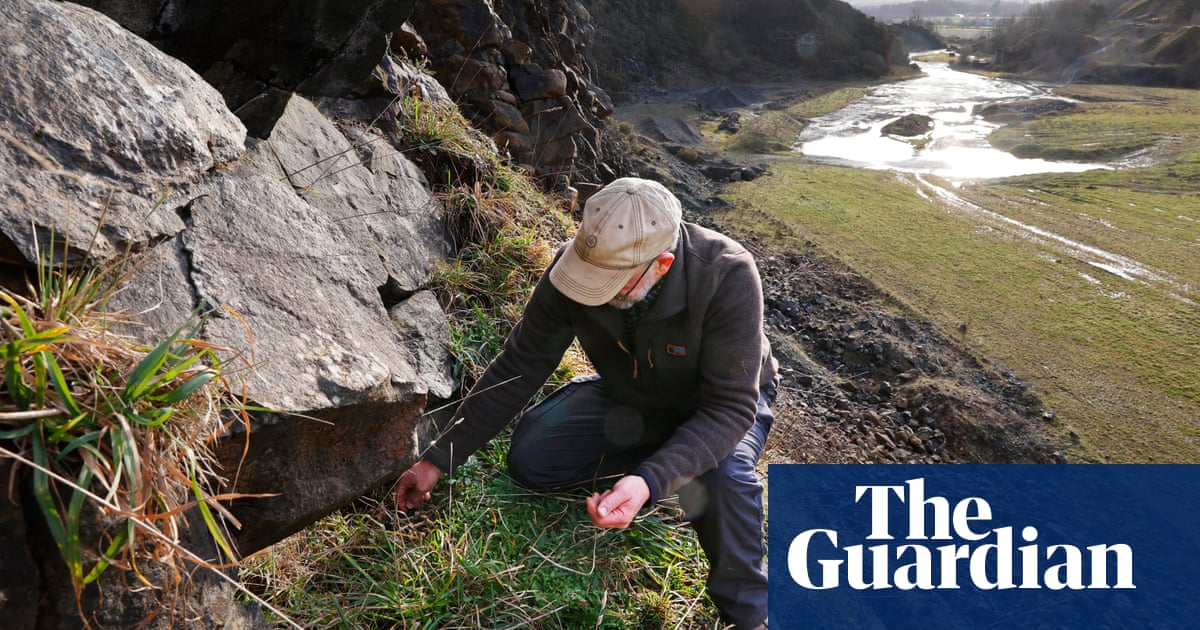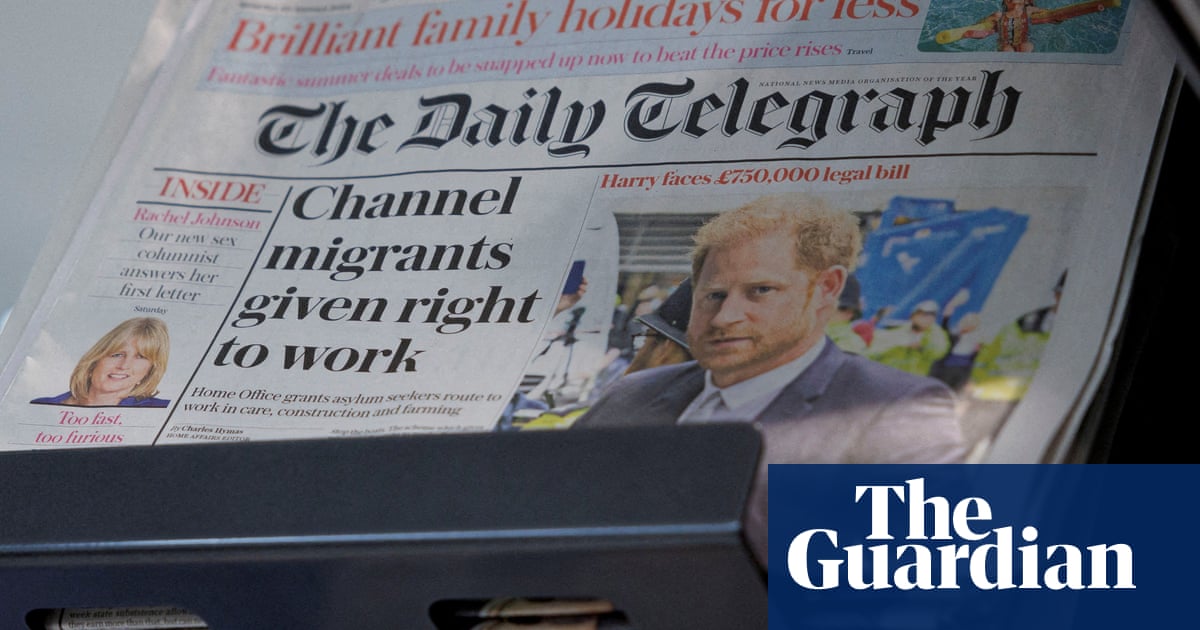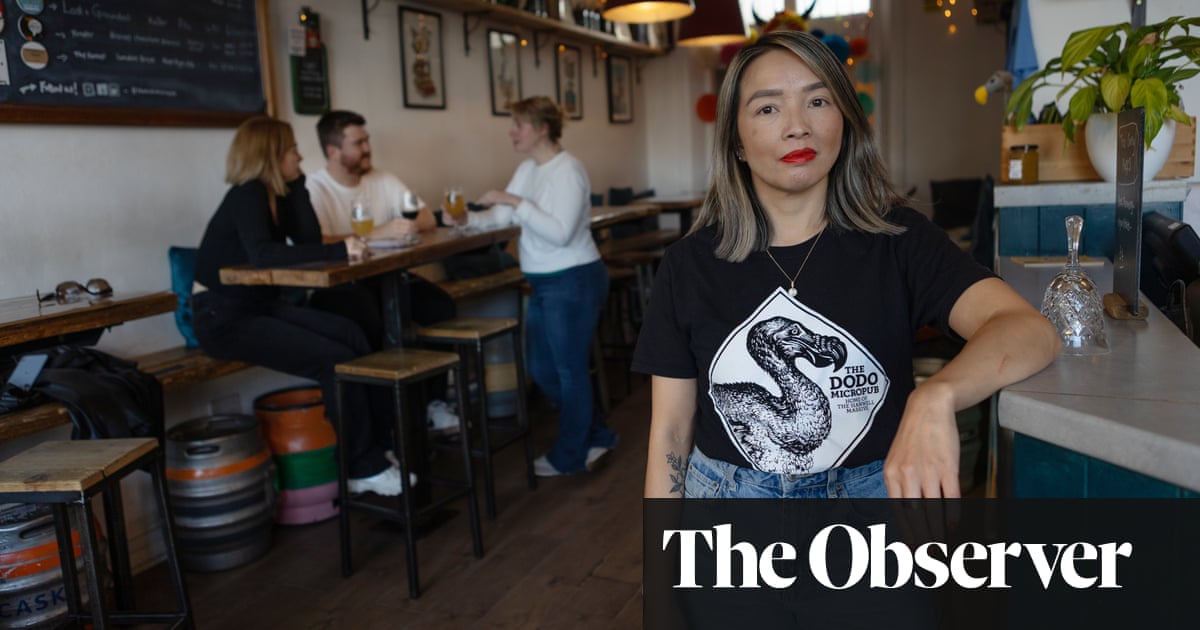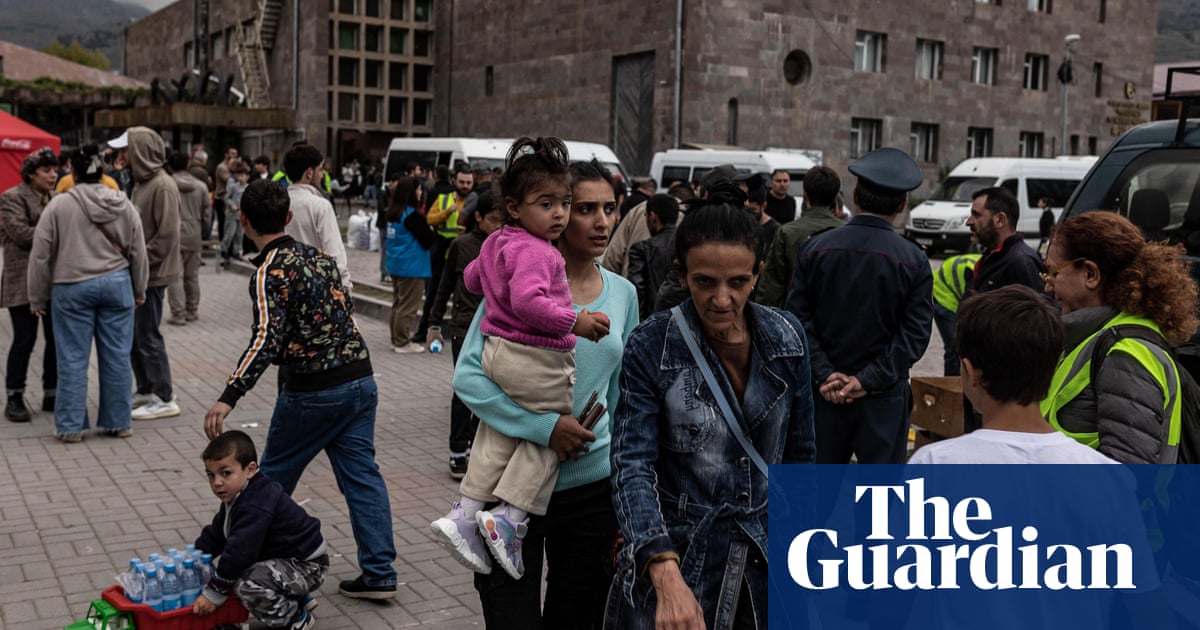
George Smith has been tracking the peregrine falcons of south Scotland since 1984. His day job is working in maintenance, but every evening and weekend from March to July, Smith is out with the raptors. The birds nest on cliffs and old quarries – he knows all the sites. Paraphernalia fills the back of his car: fake eggs, ropes, microchip readers and DNA testing kits. “I can’t help myself,” he says. “My wife would like to put a tracker on me.”
He shows me a spreadsheet detailing 120 nest sites – as peregrine coordinator at the Scottish Raptor Study Group, he is tracking more than 90% of all peregrine falcons from Edinburgh down to the border with England.
From about 2016, however, something odd started cropping up in Smith’s records. Ten nests were inexplicably failing: healthy birds would make a nest and then the eggs or chicks would disappear.
Over the years, Smith has come to know the birds individually, their traits and unusual colourings, and whose chicks are whose. “I think of them as my peregrines,” he says. “I know what each one looks like and how it behaves. It’s soul-destroying to go out and find the nests have failed.”
In early 2021, Police Scotland had begun an investigation of its own, after reports of a man bragging to friends about how much money he was making from taking wild peregrine falcon chicks.
High-status racing falcons can sell for up to £250,000 in the Middle East, according to the National Wildlife Crime Unit (NWCU). The UK exports more live raptors than any other country, and the United Arab Emirates is the largest importer.
In April 2021, the police approached Smith, asking if his records suggested any possible theft of chicks. Had he noticed anything odd? Over the next two years, his data would form part of the bedrock for a huge wildlife investigation, Operation Tantallon, which has gone on to uncover organised crime throughout the country. The first case has now been concluded in court, and police say there are more in the pipeline. House raids, seizure of live chicks and extensive forensic testing are helping police uncover a multimillion-pound international trade plagued by illegality.
The abandoned nest
The nest is perched 20 metres above the ground, on a sloped quarry cliff face in southern Scotland. It is now empty, other than some bones, feathers and a few old tags from unlucky racer pigeons. “This is where it all started,” says Smith.
In 2021, it had belonged to a female falcon, who had tried and failed to breed here for a couple of years. In April that year, one month after the initial intelligence had come through, Smith climbed up the cliff with PC Gavin Ross.
The falcon had been sitting on four eggs, but now two were missing. When the men turned around to go down, they saw a footprint, still fresh in the stony soil – but not the way they had came up. Mobile phone data would show that the eggs had been stolen just 20 minutes before they arrived. A week later, the nest was empty: the last two eggs had been taken.
Legally, captive-bred peregrine falcons can be traded, but the birds cannot be taken from the wild. They are strictly protected under the Wildlife and Countryside Act.
For racers, however, wild birds are more desirable: considered stronger, fiercer and faster. UK birds, particularly Scottish specimens, are prized in the Middle East.
Between 2007 and 2022 there was a 4,500% increase in export permits for UK peregrines, according to Police Scotland, and it is not known how many were illegally caught.
The police raid
In May 2021, one month after the trip to the quarry, the police and the Scottish Society for Prevention of Cruelty to Animals raided the home of a part-time gamekeeper, Timothy Hall, 48, and his 23-year-old son, Lewis, in Berwickshire.
Police immediately heard the sound of chicks. They found seven in the house, each just a couple of days old. Fraudulent breeding certificates, drones used to monitor nests, and notes on how each nest was progressing were all seized. One notebook had a page titled “Perries 2020” with notes about nests such as “sitting” or “found and collected”. Mobile phone data put the accused at the scene of the crime.
DNA testing showed four of the chicks came from the nest in the quarry. None were related to the nine adult captive birds in the house. All seven chicks were returned to the wild.
Detective constable Steven Irvine led the investigation for Police Scotland and the NWCU. Irvine realised from the paperwork found in the house that birds had been smuggled and sold over a number of years. Using this documentation, he found out who had bought birds from the Halls, and tracked them down.
DNA techniques helped Irvine to prove that many of these historical birds were also wild-caught. At least 22 peregrine falcons were taken from Scottish cliffs, and seven or eight are now being raced in Dubai.
The conviction of the Halls is just one fragment of Operation Tantallon, which has led to more than 3,000 active inquiries within the captive-trade of peregrine falcons across the UK, with 36 searches carried out. It is “the biggest UK wildlife crime police investigation to date in the UK”, says chief inspector Kevin Kelly, the head of the NCWU. “When we get to the end of this year, we’ll really be able to show that this is a large-scale, national and international crime type.” The police believe this trade is worth £21m in undisclosed revenue to the UK.
It is notoriously difficult to prevent wildlife crime. Despite being one of the highest value areas of crime globally, it is falling down the list of policing priorities, according to research led by Nottingham Trent University.
Irvine – who is on a secondment with NWCU – had no expertise in wildlife crime before this case fell on to his desk four years ago, and says it wasn’t an industry that was talked about much.
“If someone told me I’ll be doing what I’m doing now four years ago, I’d have said ‘go see the doctor’,” he says.
Following the money
Timothy and Lewis Hall pleaded guilty to charges under the Control of Trade in Endangered Species (Cites) for buying and selling peregrine falcons, which are highly protected Cites-listed birds.
Timothy also pleaded guilty to charges under the Wildlife and Countryside Act 1981 for being in possession of seven wild birds in May 2021, and to further charges under the Firearms Act for having an unsecured rifle in the house, as well animal cruelty charges under the Animal Health and Welfare Act for keeping nine birds in poor conditions.
Timothy and Lewis were ordered to carry out 220 and 150 hours of unpaid work respectively. Both were prohibited from possessing any bird of prey for five years. Smith said he was “extremely disappointed” they did not receive a jail sentence.
The court also heard evidence that between 2019 and 2020, the Halls were involved in the sale of 15 chicks for which they received £41,164. Lewis Hall is now subject to action under proceeds of crime legislation.
Following successful recovery efforts in the 1990s, peregrines are no longer classed as endangered in the UK, and there are about 1,750 breeding pairs. But persecution by people such as gamekeepers, pigeon fanciers and those in the falconry trade is still one of the main threats they face.
Creating a DNA database
On her computer, Dr Lucy Webster draws up a map of the UK covered in hundreds of red dots, each showing a site from which falcon DNA has been gathered.
Webster, a senior wildlife forensic scientist at Science and Advice for Scottish Agriculture, part of the Scottish government, has been coordinating DNA testing on the birds.
By studying similarities between different samples, the lab is building up a map of wild family relationships.
Creating this database will make it even harder to get away with laundering wild birds, because the team can pinpoint the chick’s parents in the wild – proving it was stolen. No other country is known to have such a comprehensive wild bird DNA database, and it is continuing to grow.
“We’re certainly getting a lot of samples in,” says Webster. Smith alone has sent Webster DNA from 140 wild birds. “We will continue processing these samples for as long as it’s useful to do so,” she says.
Peregrine falcons are distributed globally, and Webster is already in talks with labs in the US and Europe keen to use the same methods investigating the illegal trade.
Weakened protections
In the UK, campaigners say there has been a weakening of legislation which means this illegal trade is easier to get away with.
People used to have to register a peregrine in the same way they would register a vehicle, says Tom Grose, investigations officer at the RSPB, but that changed in 2008, when the government weakened the Wildlife and Countryside Act’s registration controls. “Now, if you want to sell a peregrine falcon you need to fill out a certificate but you don’t need to send it out anywhere – you just need to fill out this piece of paper.”
Eggs and chicks are “routinely being stolen” across the UK, says Mark Thomas, the RSPB’s head of investigations. “These protected birds of prey will continue to be at risk if there are not significant changes to the current legislation.”
Back in the quarry where this investigation started, we spot a male prospecting, gliding above us. Peregrine falcons can reach diving speeds of 320km/h (200mph), making them the fastest animal on the planet. The birds’ “phenomenal flight” is one of the reasons Smith loves them so much.
This male will hold the territory while the female goes to the coast to fatten up on wading birds over winter. Next month, she should return to raise chicks. Smith will be back to document their progress and hopefully see a new family. He’ll be taking DNA samples from them all, as the battle to stop the UK’s falcon thieves continues.
“They should be here – they are Scottish birds,” he says.












